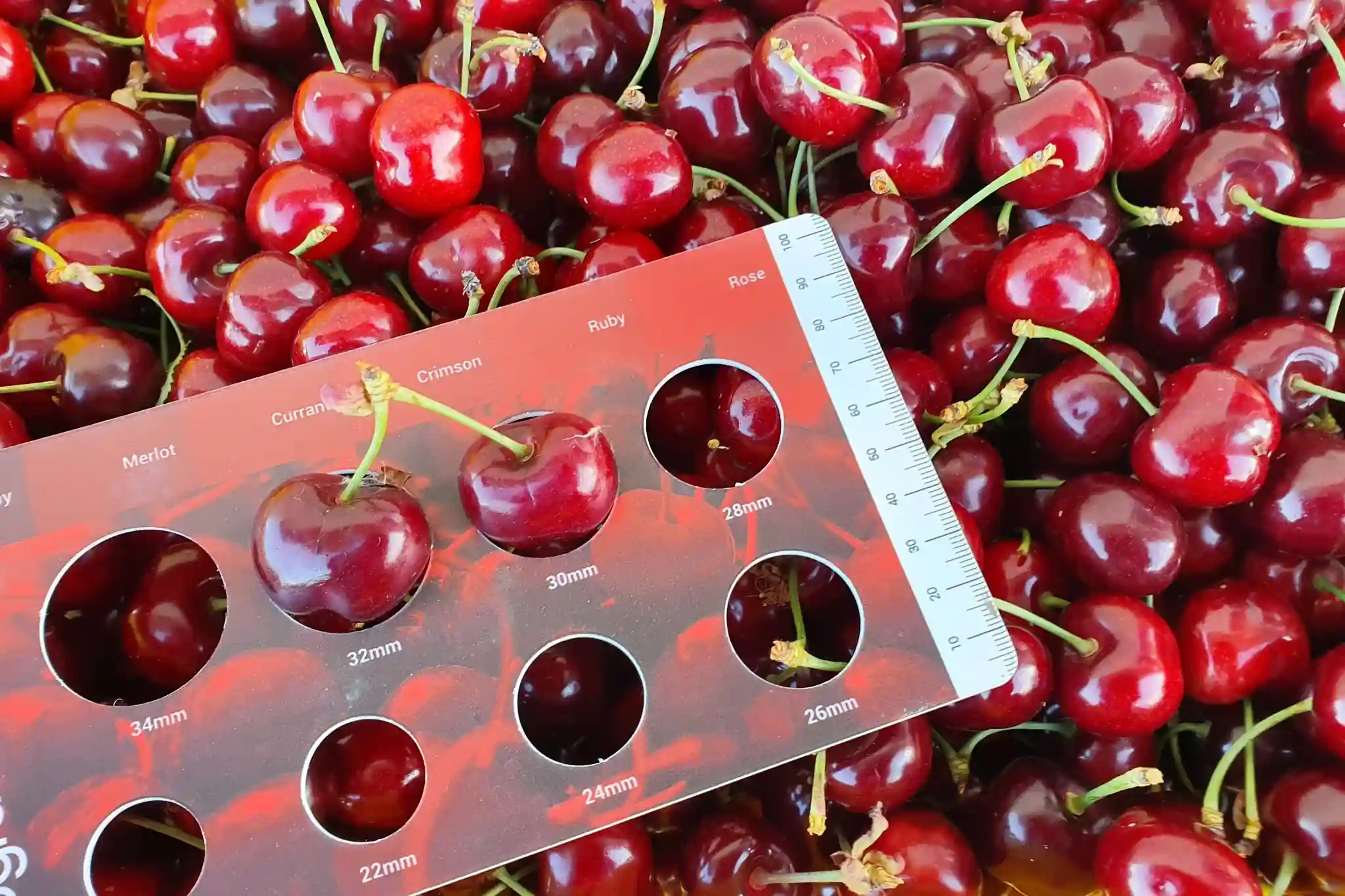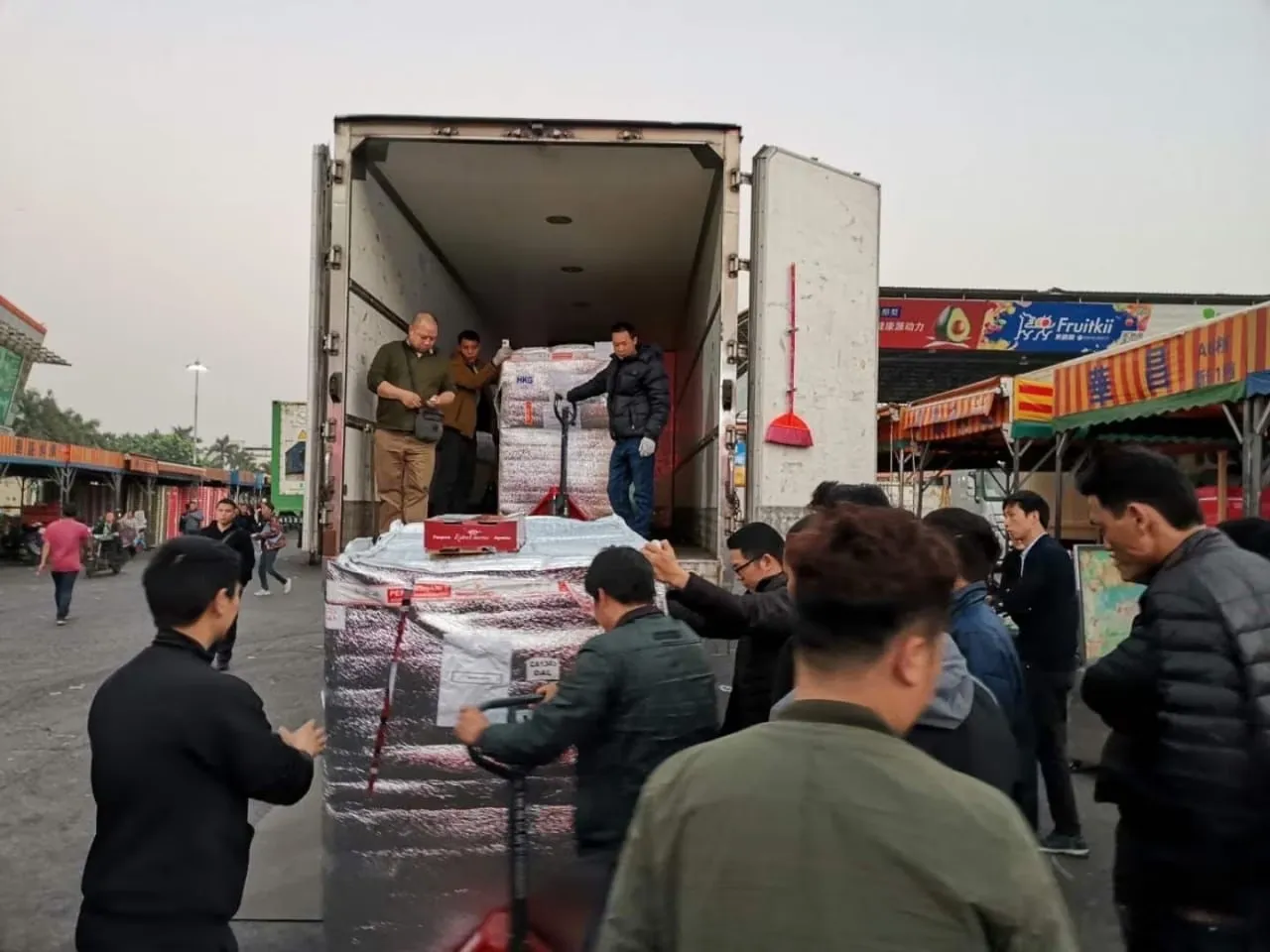The technology patented by Agralia for managing infrared radiation allows for significant improvement in crop yield and quality through cold accumulation.
Challenges in Cold Management
Cherry cultivation is rooted in temperate climate regions, where exposure to low temperatures during winter is crucial for the next season's production. However, to achieve earlier and economically sustainable yields, alternative agroclimatic zones are actively being explored.
This presents a challenge as not all regions have the necessary cold accumulation hours for optimal crop development. Climate change, with milder winters, further complicates this by interfering with the necessary refrigeration hours. "Refrigeration hours" refer to the period when the plant is kept below 7°C, a critical period for crop induction.
This is a critical period for inducing winter dormancy, a physiological process that prepares the cherry tree for the following season. A significant increase in temperature above the specified threshold can reduce cold accumulation, thereby decreasing its effectiveness for plant development.
Aluminum Microparticles Block Infrared Radiation
In this context, Agralia, a Spanish company specializing in technical agrotextiles with over four decades of experience in crop protection, has developed Agricooler.
This innovative fabric, patented by the company, incorporates aluminum microparticles to enhance cold accumulation, a significant advancement in research for agricultural solutions. The aluminum microparticles in Agricooler block infrared (IR) radiation, responsible for heat transmission.
The thermal attribute described surpasses conventional black nets in terms of effectiveness, allowing for a significantly greater reduction in temperature. Agricooler's effectiveness has been demonstrated through laboratory tests conducted at Aimplas, a leading company in plastics. These studies evaluated Agricooler and conventional black nets' ability to block IR radiation, assessing their thermal performance according to UNE-EN 13206 standards.
| Table 1. Thermal efficiency of black shade net 50%. Source: Redagrícola |
|---|
Sample
| Spectrum area (1430 - 770 cm⁻¹)
| IR Blocking Efficiency
|
| 1 | 18874.359 | 28.9 |
| 2 | 18543.273 | 28.1 |
| 3 | 21988.277 | 33.3 |
| 4 | 21893.797 | 33.2 |
| 5 | 19034.055 | 28.8 |
| Average Value | 30.5 |
| Standard Deviation | 2.6 |
The results revealed that Agricooler blocks up to 66% of IR, compared to 30% by conventional black nets. Results (tables 1 and 2) confirm Agricooler's superior effectiveness in managing IR, leading to a significant improvement in cold accumulation.
This has also been validated through tests conducted at the Pomacee Center of the University of Talca and the University of O'Higgins, as well as through direct field application by companies and large exporters who have used Agricooler with excellent results.
Growers have observed earlier harvests due to proper cold accumulation, more uniform flowering, better fruit set, and overall improved fruit quality. To adapt to the needs of each area, Agralia produces two models of Agricooler: a closed model with an external face in aluminum and an internal black one, and another model with an open raschel fabric.
| Table 2. Agrifresh 50% Thermal Efficiency. Source: Redagrícola |
|---|
Sample
| Spectrum area (1430 - 770 cm⁻¹)
| IR Blocking Efficiency
|
| 1 | 42692.688 | 64.68 |
| 2 | 41479.813 | 62.84 |
| 3 | 44206.813 | 66.98 |
| 4 | 43990,227 | 66,65 |
| 5 | 45886,293 | 69,52 |
| Average value | 66,13 |
| Standard Deviation
| 2,6 |
The strategic use of technical agrotextiles, such as Agricooler, generates optimal microclimatic conditions to promote cherry development. A significant impact of Agricooler is the increased accumulation of refrigeration units, a critical factor for the crop. This results in a significant improvement in productivity and cherry quality, thereby contributing to the profitability and sustainability of agricultural activities.
In conclusion, Agricooler represents a fundamental tool for cherry growers aiming to maximize production and adapt to the challenges of climate change in an ever-evolving agricultural environment.
Source: Redagrícola
Images: Redagrícola
Cherry Times - All rights reserved










